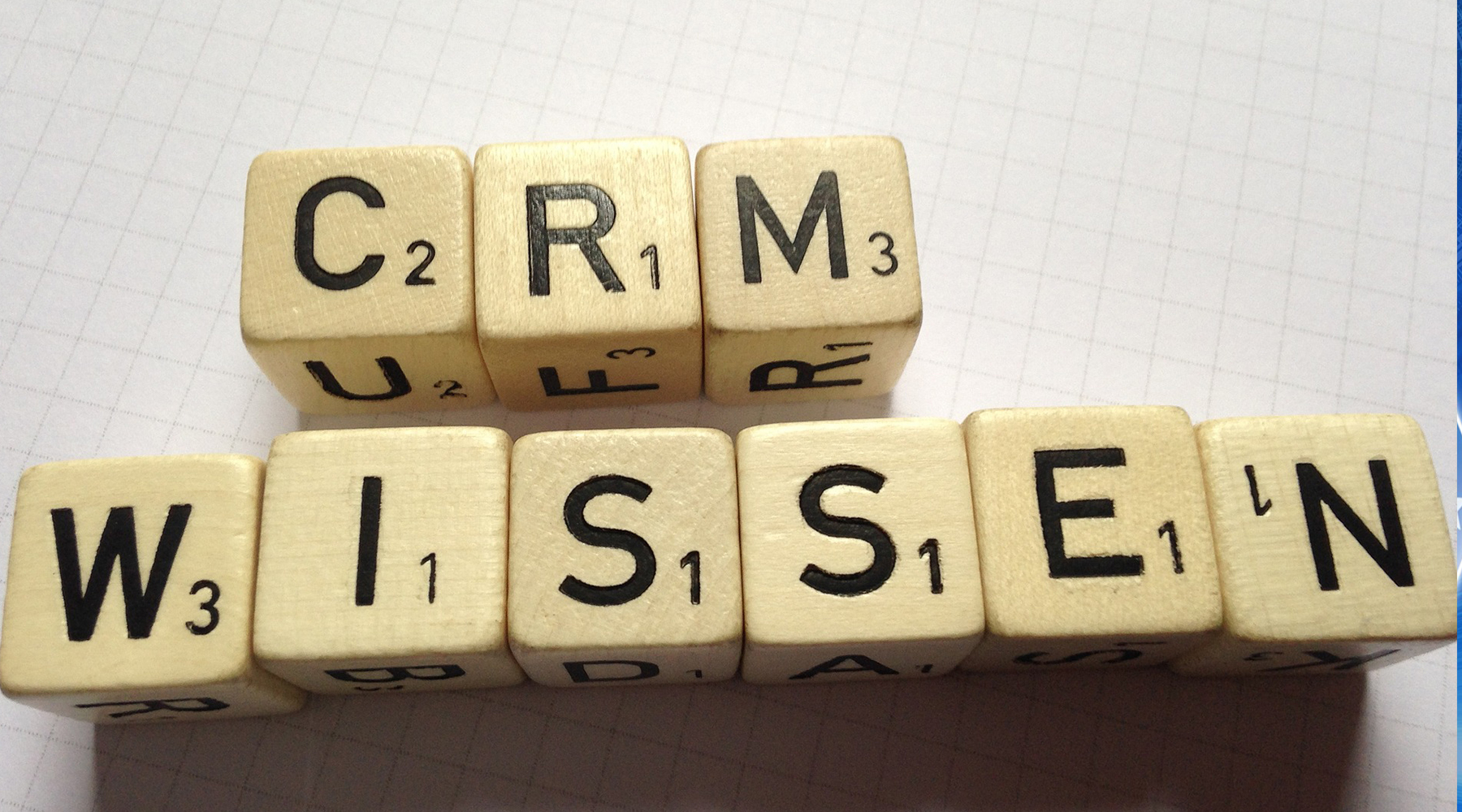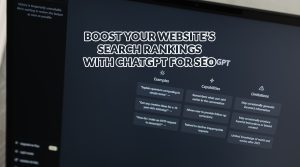
Table of Contents
The restaurant industry is a highly competitive industry, and in order to stay ahead of the game, it’s important for restaurateurs to use the best tools available. One of the most effective tools for doing this is restaurant CRM software. This software helps restaurants to better manage their customer relationship management (CRM), allowing them to stay connected with customers and understand their needs and wants at all times.
In order to take advantage of this technology, restaurateurs need to have an understanding of how restaurant CRM software works and how it can be used to benefit their business. That’s why we’ve put together this article – to give you a comprehensive guide on restaurant CRM software and how it can help you build stronger relationships with your customers.
We’ll discuss the benefits of having a dedicated customer relationship management system for your restaurant, as well as provide some tips on how you can use this system to make sure that every customer leaves your establishment happy. So if you’re looking for ways to improve your customer service, keep reading!
Definition Of CRM Software
CRM software is an invaluable tool for restaurant owners. It stands for customer relationship management, and it’s a platform that helps businesses track their customers’ data and interactions with their company. With it, owners can identify trends and create personalized experiences tailored to each customer’s needs.
The software allows restaurants to keep track of orders, bookings, reservations, feedback, and more. This makes it easy to manage customer relationships in a way that’s efficient and organized. By having all the information they need in one place, restaurant owners can better understand their customers’ wants and needs.
Using CRM software also helps restaurants build loyalty by giving them the opportunity to personalize services for each customer. For example, they can use the data collected to offer discounts or rewards for repeat customers or recommend menu items based on past orders. This helps restaurants strengthen relationships with their customers and encourages them to return again and again.
By taking advantage of CRM software, restaurant owners can stay on top of their customer relationships while streamlining operations—and ultimately improving sales.
Benefits Of Using CRM Software In Restaurants
Using CRM software can offer restaurants a variety of benefits, from streamlining operations to improving customer experience. Here are some of the primary advantages of using CRM software in restaurants:
First off, it helps restaurant owners keep track of their customers’ data and interactions with their company. This allows them to identify trends and create personalized experiences tailored to each customer’s needs. Additionally, CRM software simplifies reservation management by allowing restaurants to store information such as orders and bookings in one place. This makes it easier for staff to view customer history at any time and offer tailored services that encourage loyalty.
On top of that, restaurant owners can use this data to improve marketing efforts. They can send targeted messages, promotions, or coupons based on past orders or preferences. This helps them build relationships with their customers while also increasing sales and revenue. Plus, they can even use the platform to collect feedback and measure customer satisfaction in real-time—giving them the opportunity to address any issues quickly and efficiently.
Overall, using CRM software is an excellent way for restaurant owners to manage customer relationships while streamlining operations and boosting sales. With its wide range of features, it’s no wonder why more restaurants are taking advantage of this invaluable tool.
How To Choose The Right CRM Software
Now that you understand the benefits of CRM software in restaurants, it’s time to explore how to choose the right one. After all, there are a plethora of options available, so it’s essential to make sure you select the platform that best meets your needs. Here are some tips for selecting the right CRM software for your restaurant:
To begin with, consider what features you need and prioritize those. Do you need an automated reservation system? A loyalty program? Analytical insights into customer behavior? Knowing exactly what you require makes it easier to compare different platforms. Additionally, look at user reviews and see what others have said about each product. This can help you get a better idea of their features and performance.
On top of that, examine pricing models to ensure they fit within your budget. Some CRMs offer subscription-based services while others charge per user or feature. It’s important to take into account any additional costs such as training or support fees as well when making your decision. Finally, try out a few different options before committing to one—this way, you can get a feel for how each platform works and if it meets all your needs.
With these steps in mind, finding the perfect CRM software for your restaurant doesn’t have to be complicated. Remember to do your research and shop around until you find the best solution that works for both you and your customers!
Features Of Restaurant-Specific CRM Software
Having narrowed down your search to restaurant-specific CRM software, you’ll want to consider the features it offers. After all, it’s important that the platform you choose has the capabilities you need to optimize customer engagement and increase sales. Here are some of the features to look for when selecting a restaurant-specific CRM software.
First, look for a platform that provides easy access to customer data. This will enable you to quickly and easily identify patterns in customer behavior and use this information to better engage with them. Additionally, make sure the system offers targeted marketing tools such as automated email campaigns and targeted ads. This way, you can reach out directly to customers who are most likely to convert into sales.
Finally, consider if the platform offers loyalty programs or rewards systems that incentivize customers to keep coming back. This is an effective strategy for engaging customers over time—not only does it encourage repeat visits, but it also helps build trust and loyalty between you and your customers. With these features in mind, finding a restaurant-specific CRM software should be easier than ever!
Analyzing And Managing Customer Data Efficiently
Once you’ve chosen the right restaurant-specific CRM software for your needs, it’s time to dive into the data. After all, gathering customer data is only useful if you know how to use it. With the right platform, analyzing and managing customer data efficiently can help you better understand their preferences and behaviors—which in turn can help you engage them more effectively.
One way to maximize the potential of your customer data is to segment customers based on their behavior. By separating your customers into groups based on activities like purchase frequency or spending habits, you can create targeted marketing campaigns that are more likely to convert customers into sales. Additionally, segmenting customers makes it easier to identify high-value customers and reward them with loyalty programs or other incentives in order to encourage repeat visits.
Finally, utilizing automated reports and dashboards is an invaluable tool when it comes to staying up-to-date on customer trends. Automated reports make it easy to keep track of key performance indicators (KPIs) such as average spend per visit or total number of repeat visitors—valuable insights that can be used to inform future marketing tactics and optimize customer engagement. By leveraging these features of restaurant-specific CRM software, businesses can gain a better understanding of their customers and develop tailored strategies for engaging them more effectively.
Automating Tasks To Improve Efficiency
Armed with a comprehensive understanding of customer data, it’s time to start automating tasks in order to improve efficiency. Automation can help streamline restaurant operations, from managing reservations and staff schedules to tracking inventory and analyzing sales. By automating certain processes—such as customer follow-ups, marketing campaigns, and loyalty program rewards—restaurants can save time and resources while ensuring that customers receive the best possible service.
In addition, automation tools can help simplify tedious tasks like data entry and reporting. For instance, integrating automated reports into your CRM software can ensure that all customer data is accurate and up-to-date at all times. This eliminates the need for manual input or double-checking of data, freeing up valuable resources that can be used elsewhere. Furthermore, automation helps create more efficient workflows by allowing employees to focus on higher-value tasks such as strategic planning or customer engagement initiatives.
Ultimately, restaurant-specific CRM software coupled with automation tools is an invaluable asset when it comes to improving efficiency within your business. With the right platform in place, restaurants are able to track customer behavior more effectively while streamlining their daily operations—allowing them to provide better service while increasing profitability.
Personalizing The Customer Experience
By leveraging automation and customer data, restaurants can create a personalized experience for each customer that visits. By utilizing restaurant-specific CRM software, restaurants can track customer preferences and use this information to tailor their services and offerings to suit individual guests. This could include anything from customizing menus based on dietary restrictions to sending personalized discounts or promotions.
Personalizing the guest experience is also a great way to build loyalty and increase repeat business. By forming relationships with customers, it becomes easier to provide an exceptional level of service; the more customers feel appreciated and valued, the more likely they are to return in the future. Additionally, personalizing interactions with customers can help create positive word-of-mouth marketing which further boosts business.
Overall, personalizing the customer experience is essential for providing an exceptional level of service that will keep customers coming back for more. With the right CRM software in place, restaurants can gather valuable insights about their guests which can be used to craft tailored experiences that will make each visit special and memorable.
Increasing Online Visibility For Restaurants
In addition to personalizing the customer experience, restaurant owners must also focus on increasing their online visibility in order to attract new customers. With the proliferation of online search engines and social media platforms, it’s becoming increasingly important for restaurants to have an active presence online.
Having a website that is easy to navigate and provides helpful information is essential for success. This could include details about menu items, hours of operation, contact information, and even reviews from previous customers. Additionally, by creating accounts on popular social media sites such as Facebook, Instagram, and Twitter, restaurants can reach a wider audience and engage with potential customers in real-time.
Moreover, optimizing content with relevant keywords can help ensure that customers are able to find the restaurant easily when searching online. By investing in search engine optimization (SEO) services or engaging in other digital marketing strategies such as pay-per-click advertising or creating video content, restaurants can drive more traffic to their website and increase their visibility.
Overall, having an active presence online is essential for attracting new customers and expanding business. By utilizing various digital marketing tools and techniques, restaurants can increase their visibility and gain better access to potential guests who are looking for a great dining experience.
Integrating With Other Systems
In addition to increasing online visibility, restaurants must also consider integrating their systems with other resources. By integrating restaurant customer relationship management (CRM) software and other third-party applications, businesses can streamline processes and operations. This could include everything from tracking sales data to managing customer feedback.
Having an integrated CRM system helps restaurants keep track of customer information and preferences in order to personalize the dining experience. Additionally, restaurants can use this system to monitor customer loyalty programs and send out promotional offers and discounts. Integrating with third-party applications also allows for automated order processing, which speeds up service time and improves efficiency.
Integrating restaurant systems into a single platform makes it easier for staff members to access all the necessary information in one place. Moreover, by connecting existing systems with cloud-based services, restaurants can manage their operations remotely from any device or location. This helps save time and money while ensuring that customers have a seamless experience when visiting the restaurant.
Maximizing Customer Retention And Engagement
In order to maximize customer retention and engagement, restaurants must focus on creating a personalized experience. One way to do this is by leveraging the data collected through their CRM system. This can be used to analyze customer behaviors, preferences, and buying patterns. With this information, restaurants can tailor promotions and offers that are relevant to each customer. Additionally, it can help identify opportunities for cross-selling and upselling so that customers have a more comprehensive dining experience.
Furthermore, restaurants should use their CRM system to monitor customer feedback in real-time. This helps them respond quickly to any complaints or inquiries while ensuring they are providing the best possible service. Additionally, businesses should aim to collect reviews from customers so they can better understand what works and what needs improvement.
By focusing on personalized experiences, restaurants can create an environment where customers feel valued and appreciated. This helps improve loyalty and encourages repeat visits which ultimately leads to increased sales. Furthermore, by combining the power of CRM with other systems such as marketing automation tools, restaurant owners can drive even more success with their business operations.
Frequently Asked Questions
What Is The Cost Of Implementing A Restaurant CRM Software System?
The cost of implementing a CRM software system is an important question, especially for those considering such a solution. For those unfamiliar with the concept, a CRM (Customer Relationship Management) system is software that helps businesses manage and track interactions with customers. It can be used to store customer data and automate certain tasks. But how much does it cost to get up and running?
The cost of implementing a CRM system will depend on several factors, including the type of business, the size of the organization, and the features desired. For example, larger companies may need more advanced features than smaller ones, leading to higher costs. Additionally, some companies offer custom solutions tailored to their specific needs, which can lead to higher costs as well.
In terms of actual numbers, there is no one-size-fits-all answer when it comes to the cost of implementing a CRM software system. Prices can range from hundreds of dollars per month for basic services up to thousands for more complex systems. Ultimately, it’s important for businesses to find a system that fits their budget while still providing the features they need for their operations.
How Long Does It Take To Set Up A Restaurant CRM System?
Setting up any new technology system can be a challenging task, and it’s important to understand the time frame required for successful implementation. When it comes to restaurant customer relationship management (CRM) software, it’s no different. So how long does it take to set up such a system?
First and foremost, the answer depends on the complexity of the particular CRM solution that you choose. Some solutions are simple enough to be largely self-service, while others require more significant support from an experienced team. The size of your organization and the number of users will also affect how quickly you can get up and running with a CRM system. A smaller organization may be able to complete setup within a few days or even hours, while larger organizations could take several weeks or months.
Another factor in setting up a restaurant CRM is training staff on how to use it effectively. To reap all of the benefits that come with implementing this type of software, your team must understand exactly how to use the features available in the system. Training does not have to take a large amount of time but should include topics like entering data correctly into fields, searching for information quickly, following processes correctly, gaining insights from reports and analytics and properly managing customer relationships. With proper training in place and everyone on board, your team should be ready to go with a restaurant CRM system in no time at all.
All things considered, there is no one-size-fits-all answer when it comes to how long it takes to set up a restaurant CRM system; it really depends on the individual business needs and capabilities of your organization. By understanding all aspects involved in implementation – from selecting the right solution for your business goals to providing ongoing training – you can ensure that setting up this type of software will go as quickly and smoothly as possible.
What Technical Support Is Available For A Restaurant CRM System?
When it comes to setting up a customer relationship management (CRM) system, technical support is an important consideration. A CRM system can be complex, and setting it up correctly is essential for its success. Without the proper technical support, businesses may struggle to get the most out of their CRM. So what type of technical support is available for a CRM system?
One of the first options is to seek help from the provider of the CRM software. These companies often provide customer service representatives who can answer questions and guide users through any issues they are having with their system. They may also provide tutorials or other resources that can help users learn how to use the software efficiently. Additionally, some companies offer phone or chat support if users need more personalized assistance with their setup.
Another option is to look for third-party vendors that specialize in technical support for particular types of software, including CRM systems. These vendors usually have teams of experienced technicians who are knowledgeable about different types of software and can provide tailored advice and solutions for specific needs. They may even provide remote access so that technicians can fix problems quickly without requiring users to take time out of their day for on-site visits.
In addition to seeking external support from providers or third-party vendors, businesses should also make sure they have someone on staff who has experience with setting up and managing a CRM system. This person should be able to provide internal troubleshooting and maintenance services as needed, helping ensure that the system runs smoothly over time. Having someone on staff who is familiar with the setup process can save businesses both time and money in the long run by reducing their reliance on external experts.
What Are The Risks Associated With Using A Restaurant CRM System?
When considering the use of a CRM system, it is important to understand any potential risks associated. There are a few key factors to consider when deciding if the system is right for your business. By evaluating these points, you can make an informed decision about whether or not to move forward with the software.
One risk that must be considered when using CRM software is privacy and security. The system will contain sensitive customer data and must be protected from potential threats in order to ensure customer safety and trust in your business. It’s important to make sure the system you choose has robust security measures in place, such as encryption technologies, firewalls, and access control systems, to protect customer data.
Another factor to consider is scalability. If your business grows quickly, you need a system that can keep up with the increasing demand. Your CRM system should have features that allow it to expand as your business needs change. Additionally, you should also look for features that enable customization so you can tailor the software to fit your specific needs.
Cost is another risk factor that must be taken into account when choosing a CRM system. Depending on how many users need access to the program and what features are included in each plan, the cost of the software can add up quickly. It’s essential to compare different plans and determine which one offers the most value for your money before making a commitment.
It is critical for businesses to understand all aspects of their CRM system before making any decisions about its use. Evaluating these risks can help ensure that you choose a solution that meets all of your needs while keeping customer data secure and costs low.
Are There Any Additional Fees Associated With Using A Restaurant CRM System?
Are there any additional fees associated with using a restaurant CRM system? This is an important question to ask if you are considering using such a system. It can be difficult to understand the full scope of costs associated with these systems, as they may have hidden fees or charges that can add up quickly. To make sure you get the most out of your investment, it’s important to understand all the potential costs before signing on the dotted line.
When researching potential CRM systems for your restaurant, it’s best to look at all aspects of the service: setup and installation fees, monthly subscription fees, training and support costs, as well as any other possible additional charges. Some systems may require additional hardware or software that needs to be purchased separately in order for it to work properly. Be sure to inquire about these types of costs so you don’t end up paying more than you expected.
It’s also essential to consider ongoing maintenance when deciding whether or not a restaurant CRM system is right for your business. Many systems offer annual or even lifetime subscriptions that include regular updates as well as technical support. These can help keep your system running smoothly and ensure that you don’t miss out on any new features or functionality. Additionally, some companies will charge extra if you need additional customization or integration work done on their platform. Make sure you ask about these types of services before committing to anything so there are no surprises down the road.
Choosing the right CRM system for your restaurant can be a tricky decision, but understanding all associated costs upfront can help ensure that you get the most out of your investment in the long run. Taking into account setup and installation fees, subscription fees, training and support costs, and any other potential extra charges will help you make an informed decision about which system is best suited for your needs and budget.
Conclusion
In conclusion, utilizing a restaurant CRM software system to manage customer relations can be a great investment. It’s essential to consider the cost, setup time, technical support, and risks associated with such a system before making any decisions.
The initial implementation costs of a restaurant CRM system may vary depending on the options chosen. It typically takes about 4-6 weeks to set up a restaurant CRM system from start to finish. Technical support is also available for those who are having trouble navigating the system or need help troubleshooting certain issues. There are some risks associated with using a restaurant CRM system, such as data privacy and security concerns, but these can be mitigated with proper training and protocols in place.
Finally, you should also check if there are any additional fees associated with using a restaurant CRM software package. These may include monthly service charges or maintenance fees that need to be factored into your budgeting process. With all this information in mind, you can make an informed decision that will best serve your business needs when it comes to managing customer relationships through a restaurant CRM system.



